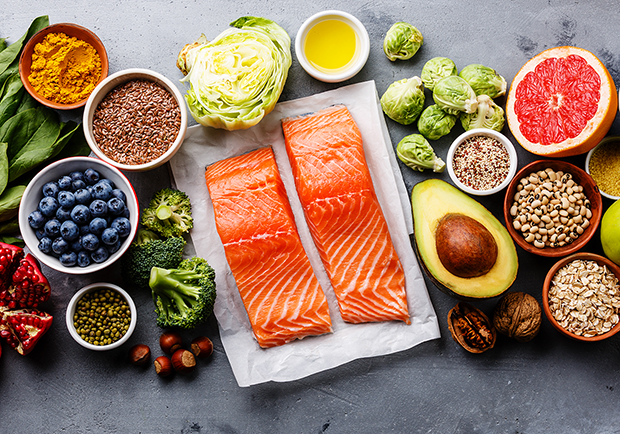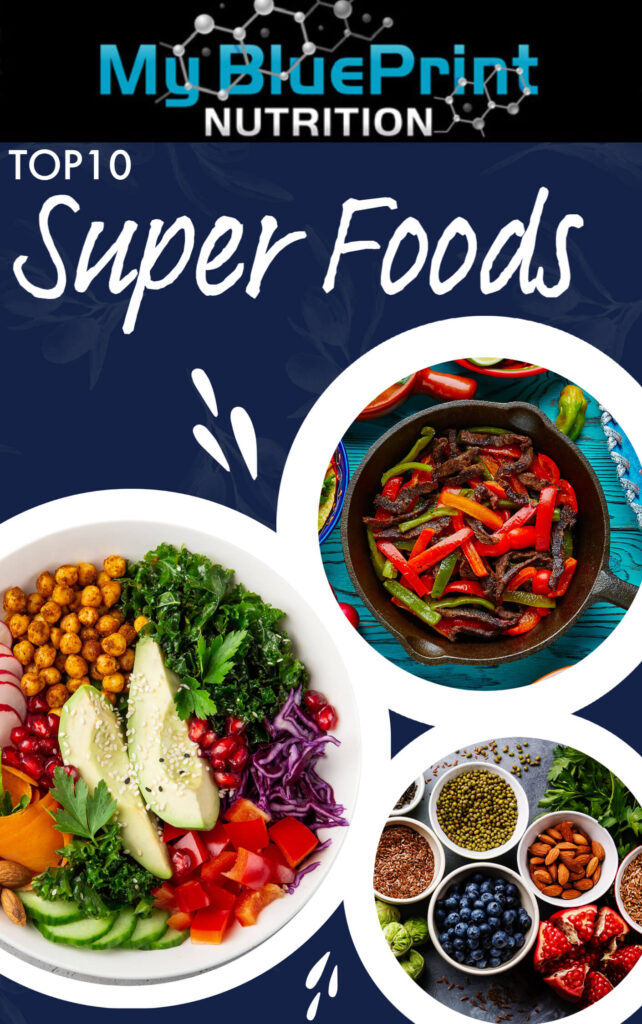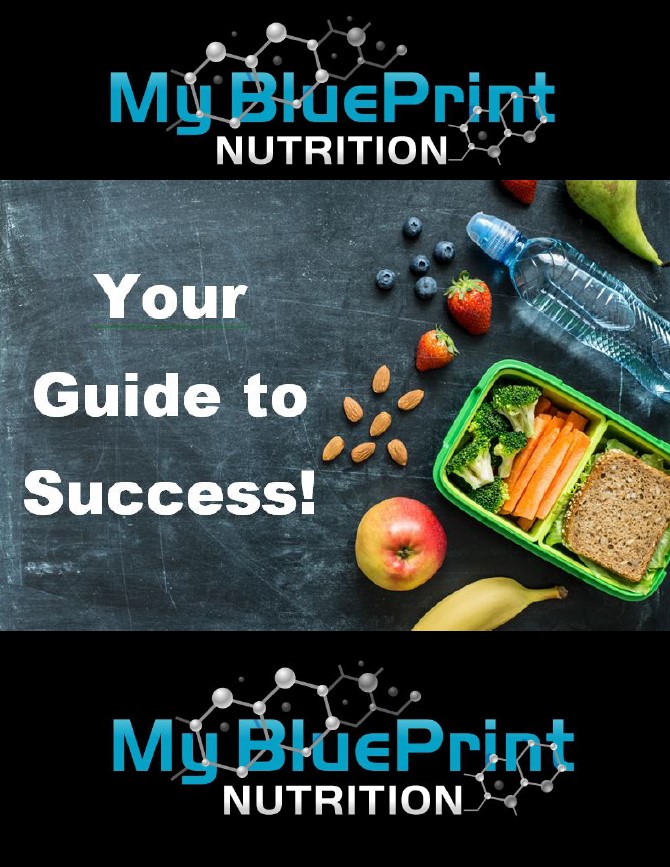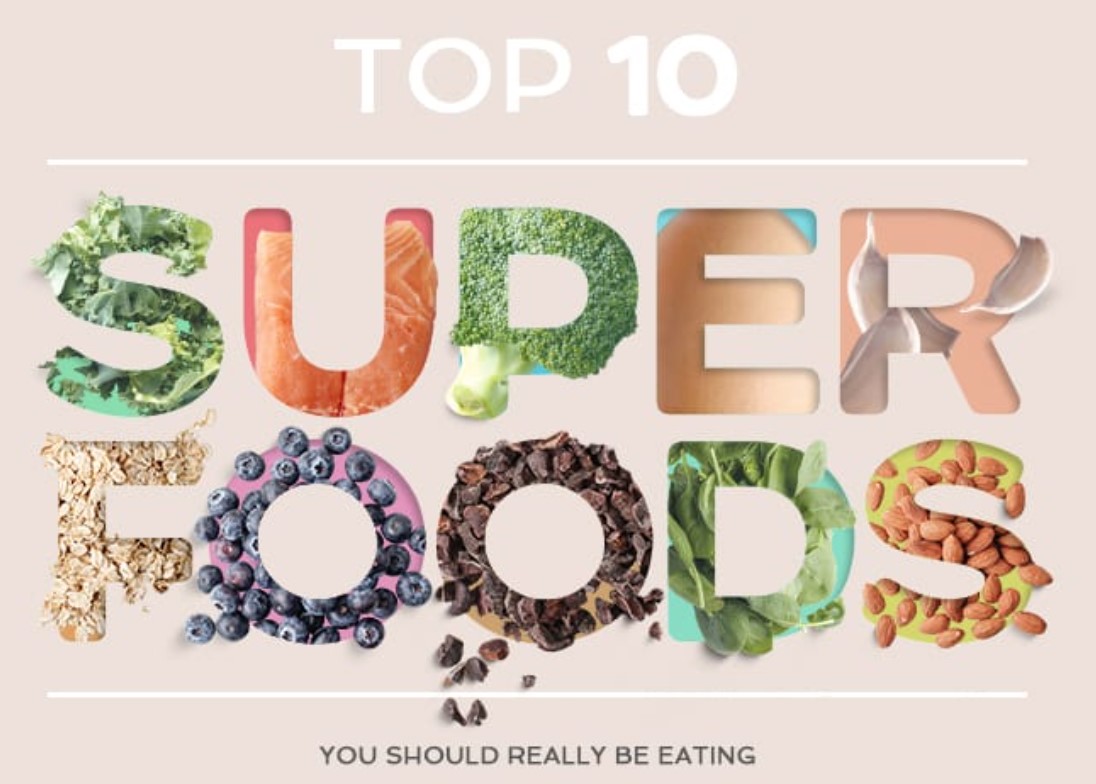Introduction
The term “superfood” is used to describe foods that are nutritionally dense and offer a wide range of health benefits. These foods are considered “super” because they are rich in essential vitamins, minerals, and nutrients that our bodies need for optimal health and functioning. They are often associated with a reduced risk of chronic diseases such as heart disease, cancer, and type 2 diabetes, and are also known for their ability to improve overall wellness, enhance energy levels, and boost the immune system. The term “superfood” is not a scientific term and is not regulated by any governmental or health organizations. Nevertheless, it is widely used to describe foods that are believed to have exceptional nutritional and health benefits.
No single food — not even a SUOERFOOD — can offer all the nutrition, health benefits, and energy we need to nourish ourselves.
REMEMBER – It is always best to consult with a healthcare professional or registered dietitian before making any significant changes to your diet, especially if you have any health concerns.

The Super Food list:
- Blueberries
- Salmon
- Kale
- Avocado
- Sweet Potatoes
- Quinoa
- Nuts
- Chia Seeds
- Turmeric
- Goji Berries
How to include the 10 Super Foods in your Diet and meal plan:
- Blueberries: Add blueberries to your yogurt or oatmeal, or enjoy as a snack on their own.
- Salmon: Bake or grill salmon for a quick and healthy dinner, or add it to salads for extra protein.
- Kale: Use kale in smoothies, salads, or sautéed as a side dish.
- Avocado: Mash avocado onto toast or add it to tacos, salads, or smoothies.
- Sweet Potatoes: Roast sweet potatoes as a side dish or add them to soups and stews.
- Quinoa: Cook quinoa as a base for salads, or use it as a substitute for rice in stir-fries.
- Nuts: Enjoy a handful of nuts as a snack, or add them to oatmeal or yogurt.
- Chia Seeds: Mix chia seeds into smoothies or yogurt, or use them as a topping for oatmeal or salads.
- Turmeric: Use turmeric to add flavor to soups, curries, or roasted vegetables.
- Goji Berries: Add goji berries to smoothies, yogurt, or oatmeal, or enjoy as a snack on their own.
Remember, it’s important to have a balanced and varied diet, and not to rely solely on these superfoods. Eating a variety of nutrient-dense foods from different food groups will help ensure you get all the nutrients you need for good health. Additionally, everyone’s individual health needs are different, so it’s always a good idea to speak with a healthcare professional before making significant changes to your diet.
The Super Food Health Benefits:
- Blueberries: Studies have shown that blueberries can help lower the risk of heart disease, improve brain function, and reduce the risk of some types of cancer.
- Salmon: The omega-3 fatty acids found in salmon have been linked to a reduced risk of heart disease and stroke, and may also help with depression, anxiety, and other mental health conditions.
- Kale: Kale is high in antioxidants and anti-inflammatory compounds, which may help reduce the risk of heart disease and certain types of cancer.
- Avocado: The monounsaturated fats and fiber in avocados can help improve heart health, reduce the risk of type 2 diabetes, and support weight management.
- Sweet Potatoes: Sweet potatoes are a good source of vitamins and minerals, including vitamin A and vitamin C, which can help boost the immune system and reduce the risk of some types of cancer.
- Quinoa: Quinoa is a complete protein and is high in fiber, which can help lower cholesterol levels and reduce the risk of heart disease and type 2 diabetes.
- Nuts: Nuts are a good source of healthy fats and fiber, which can help reduce the risk of heart disease and improve cholesterol levels.
- Chia Seeds: Chia seeds are high in fiber and omega-3 fatty acids, which can help lower the risk of heart disease and improve mental health.
- Turmeric: The anti-inflammatory compounds in turmeric may help reduce the risk of certain types of cancer and heart disease, as well as help with joint pain and other inflammatory conditions.
- Goji Berries: Goji berries are high in antioxidants and vitamins, which can help boost the immune system and reduce the risk of certain types of cancer and heart disease.
The Super Food Nutritional Facts:
- Blueberries: Blueberries are low in calories and high in fiber, vitamin C, and antioxidants, including anthocyanins. One cup of blueberries contains 84 calories, 3 grams of fiber, 24% of the daily value (DV) for vitamin C, and 24% of the DV for manganese.
- Salmon: Salmon is a rich source of omega-3 fatty acids, protein, and vitamins B12 and D. A 3-ounce serving of salmon contains approximately 140 calories, 20 grams of protein, and at least 1,000 milligrams of omega-3 fatty acids.
- Kale: Kale is low in calories and high in fiber, vitamin K, vitamin C, and antioxidants, including beta-carotene and lutein. One cup of raw kale contains 33 calories, 2 grams of fiber, over 100% of the DV for vitamin K, and over 200% of the DV for vitamin C.
- Avocado: Avocados are high in healthy monounsaturated fats, fiber, and potassium. One medium avocado contains approximately 250 calories, 4 grams of fiber, and 20% of the DV for potassium.
- Sweet Potatoes: Sweet potatoes are high in fiber, vitamin A, and potassium. One medium sweet potato contains 103 calories, 3 grams of fiber, 769% of the DV for vitamin A, and 16% of the DV for potassium.
- Quinoa: Quinoa is a complete protein and a good source of fiber, iron, and magnesium. One cup of cooked quinoa contains 222 calories, 8 grams of protein, 5 grams of fiber, and 15% of the DV for iron.
- Nuts: Nuts are a good source of healthy monounsaturated and polyunsaturated fats, fiber, and protein. A one-ounce serving of almonds, for example, contains 160 calories, 6 grams of protein, 3 grams of fiber, and 14 grams of healthy fats.
- Chia Seeds: Chia seeds are high in fiber, omega-3 fatty acids, and protein. Two tablespoons of chia seeds contain 140 calories, 5 grams of fiber, 4 grams of protein, and 9 grams of healthy fats.
- Turmeric: Turmeric is high in antioxidants and anti-inflammatory compounds, including curcumin. One teaspoon of turmeric contains approximately 24 calories and 2.1 grams of curcumin.
- Goji Berries: Goji berries are high in antioxidants, vitamin C, and fiber. One-quarter cup of dried goji berries contains approximately 70 calories, 4 grams of fiber, and 25% of the DV for vitamin C.

Note: These are general health benefits of some of the superfoods and may not apply to everyone. It is always best to consult with a healthcare professional or registered dietitian before making any significant changes to your diet, especially if you have any health concerns.
Additionally, it is important to note that incorporating superfoods into your diet can be beneficial, but they should not replace other healthy lifestyle habits, such as regular exercise and adequate sleep.

If you would like to get your own full-blown copy of our “Super Foods” eBook jampacked with information and suggestions…..
ALSO,

Say goodbye to boring diets and hello to tasty, fat-burning meals with our high-protein recipe cookbook.

